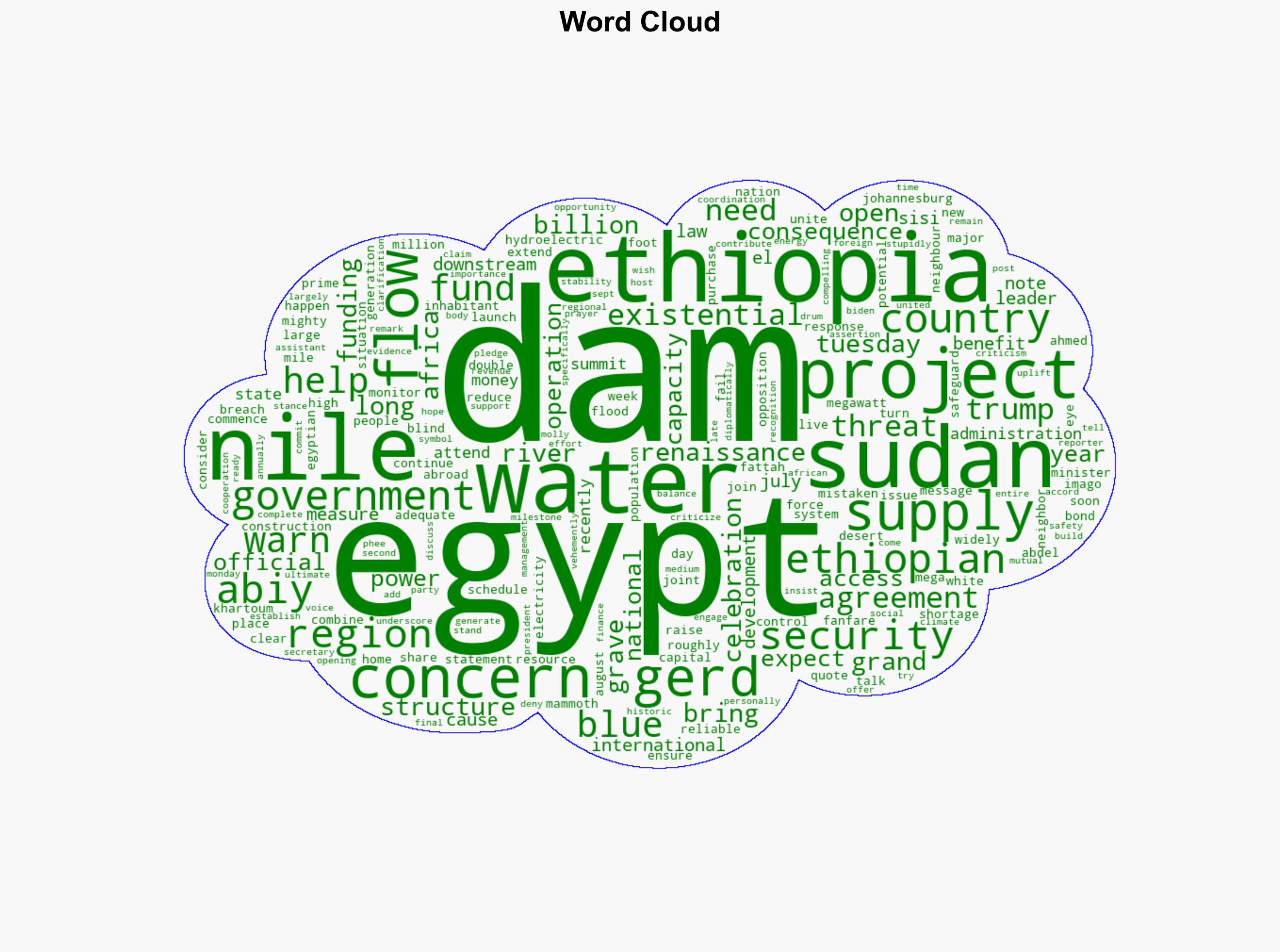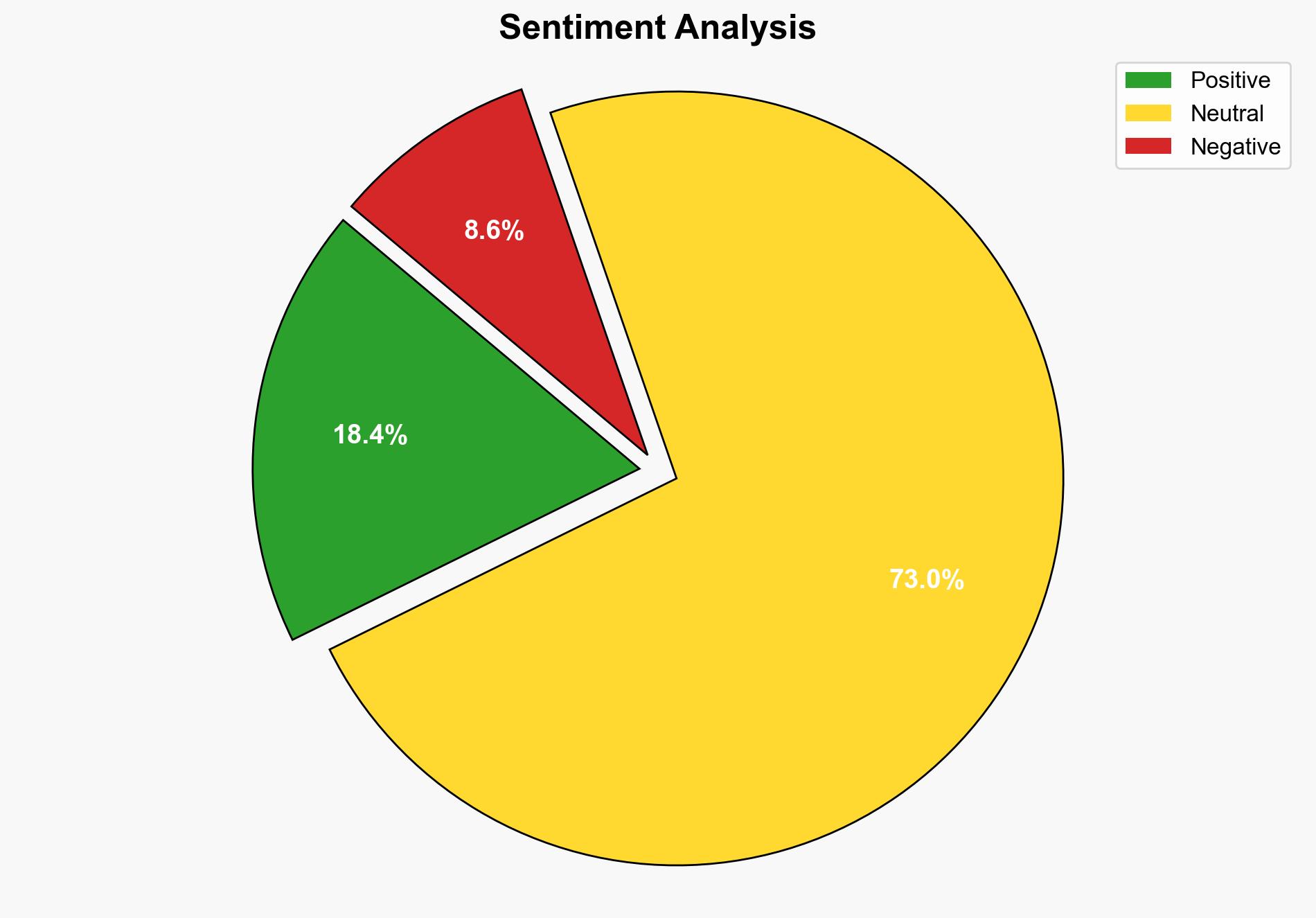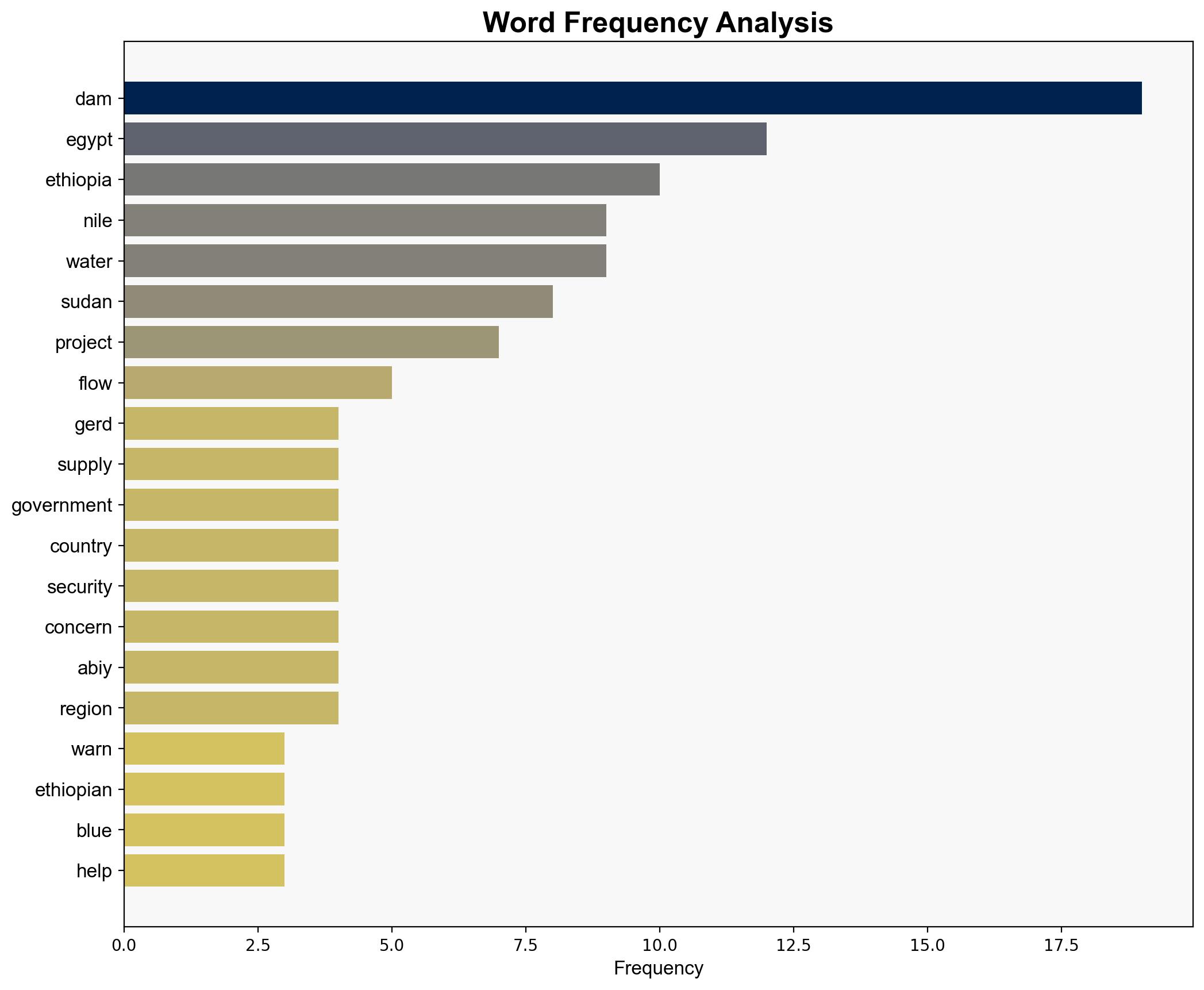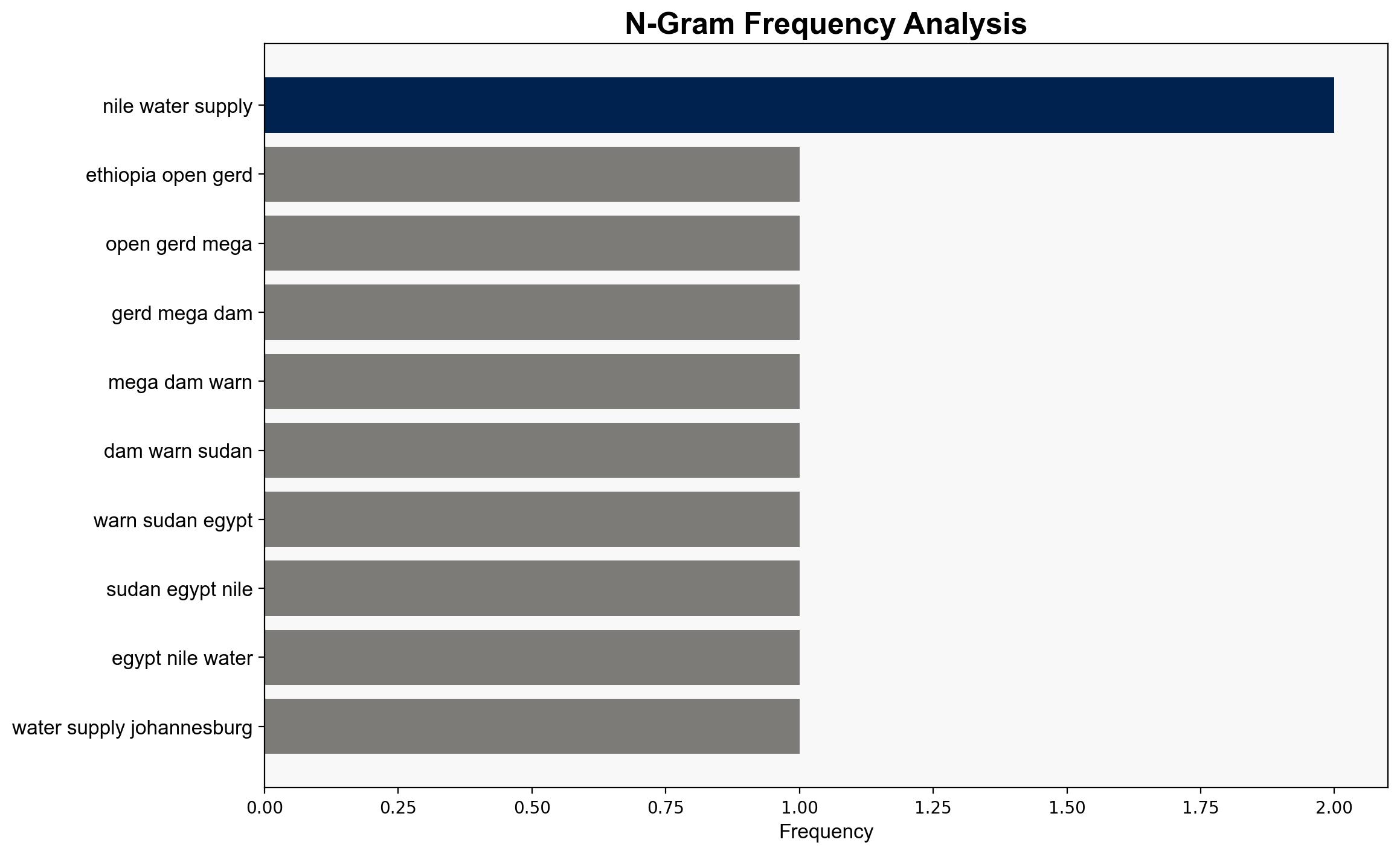Ethiopia to open 5B mega-dam despite concerns over Nile water supply – CBS News
Published on: 2025-09-08
Intelligence Report: Ethiopia to open 5B mega-dam despite concerns over Nile water supply – CBS News
1. BLUF (Bottom Line Up Front)
Ethiopia’s decision to operationalize the Grand Ethiopian Renaissance Dam (GERD) is poised to significantly impact regional water security, with potential geopolitical tensions involving Sudan and Egypt. The most supported hypothesis suggests that Ethiopia aims to leverage the dam for economic and regional influence, despite potential diplomatic fallout. Confidence Level: Moderate. Recommended action includes diplomatic engagement to facilitate a trilateral agreement on water resource management.
2. Competing Hypotheses
1. **Ethiopia’s Strategic Leverage Hypothesis**: Ethiopia is using the GERD to enhance its economic position and regional influence, prioritizing national development over regional water security concerns. This is supported by Ethiopia’s emphasis on the dam’s economic benefits and energy generation capacity.
2. **Regional Cooperation Hypothesis**: Ethiopia genuinely seeks regional cooperation and mutual benefits through the GERD, as indicated by statements from Ethiopian officials highlighting opportunities for energy development and flood control for neighboring countries.
Using ACH 2.0, the Strategic Leverage Hypothesis is better supported due to Ethiopia’s unilateral actions and the lack of a binding agreement with Sudan and Egypt, despite diplomatic overtures.
3. Key Assumptions and Red Flags
– Assumptions: Ethiopia assumes that economic benefits will outweigh diplomatic costs. Sudan and Egypt assume that the dam will significantly disrupt their water supply.
– Red Flags: Ethiopia’s dismissal of international concerns and the absence of a comprehensive water-sharing agreement.
– Blind Spots: Potential underestimation of regional backlash and the impact of climate change on water availability.
4. Implications and Strategic Risks
– **Economic Risks**: Potential for reduced agricultural productivity in Egypt and Sudan due to altered water flow.
– **Geopolitical Risks**: Escalation of tensions could lead to diplomatic or military confrontations.
– **Psychological Risks**: Heightened nationalistic sentiments in Egypt and Sudan could pressure governments to take assertive actions.
– **Cascading Threats**: Disruption in water supply could lead to humanitarian crises, affecting millions dependent on the Nile.
5. Recommendations and Outlook
- Facilitate trilateral negotiations to establish a binding water-sharing agreement.
- Encourage Ethiopia to implement confidence-building measures, such as data sharing on dam operations.
- Scenario Projections:
- Best Case: Successful negotiation leads to regional cooperation and economic growth.
- Worst Case: Diplomatic failure results in military confrontation and regional instability.
- Most Likely: Prolonged diplomatic stalemate with intermittent tensions and economic impacts.
6. Key Individuals and Entities
– Abdel Fattah el-Sisi
– Abiy Ahmed
– Molly Phee
7. Thematic Tags
national security threats, water resource management, regional diplomacy, economic development




